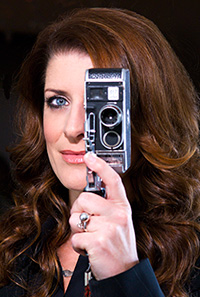
Over the last 20 years Francesca Rudkin has been working in the media as a film and music reviewer (NZ Herald, Breakfast TV), a television presenter and producer, and voice over artist. Francesca is Rialto Channel's resident vlogger, allowing her to indulge in her love of world cinema. Her next challenge is to convince her young children that being a “Cinephile” is a legitimate profession.